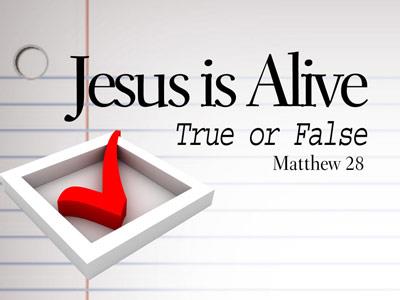-
Messiah On Trial Series
Contributed by Mark Schaeufele on Nov 28, 2017 (message contributor)
Summary: Once we have honestly and objectively examined the truth about Jesus we can only come to one conclusion: He is who He said He was, the Son of God.
Messiah On Trial
Text: Matt. 26:57-68
Introduction
1. Illustration: When C.S. Lewis came to Oxford University he was an atheist. He had lost his mother at nine and the rest of his life was spent in boarding schools. But had no use or belief in God. But while at Oxford he met a man who became his best friend: J.R.R. Tolkein. You know him as the author of The Lord of the Rings. Tolkein, along with some other friends challenged Lewis to investigate the Bible. So Lewis did. It was from that investigation and through the counsel of his friends that Lewis moved from atheism to a deep Christian faith.
2. Jesus went on trial over 2000 years ago, and unfortunately, He is still on trial today.
a. That is unfortunate because the evidence that Jesus is who He said He was is overwhelming to say the least.
b. This is unfortunate because all too often people ignore the truth about Jesus, His claims, and His teachings.
c. However, the good news is, that like C.S. Lewis, there are those that once they examine the truth about Jesus come to faith in Him, resulting in their lives being transformed forever.
3. When people put Jesus on trial today it is often...
a. Unfair
b. Unethical
c. Unbelieving
4. Let's stand together as we read Matt. 26:57-68
Proposition: Once we have honestly and objectively examined the truth about Jesus we can only come to one conclusion: He is who He said He was, the Son of God.
Transition: When people put Jesus on trial today it is often...
I. Unfair (57).
A. Home of Caiaphas
1. After Jesus' arrest in the Garden everything else that happens from there can best be described as a "kangaroo court."
2. Jesus trial had basically 3 stages: 1) before Annas the former High Priest and father-in-law of the current High Priest Caiaphas, which is not mentioned by Matthew, 2) before the Sanhedrin, at night, and 3) before the Sanhedrin in the morning.
a. The session that Matthew is talking about here is the night trial before the Sanhedrin.
b. It was against Jewish law to hold a trial at night, but they were so eager to get rid of Jesus nothing else mattered.
c. They knew that in order to keep Jesus large following from rioting they would have to have some semblance of a trial (Horton, 597-599).
3. Matthew tells the second hearing by saying, "Then the people who had arrested Jesus led him to the home of Caiaphas, the high priest, where the teachers of religious law and the elders had gathered."
a. The Jewish religious authorities have hastily gathered to interrogate Jesus, find him guilty of violating their laws, and then establish a case by which they can accuse him of violating Roman law.
b. The Romans exercised control over all judicial proceedings but allowed some freedom to the Jewish people to try their own legal matters.
c. However, they kept the death penalty under their own jurisdiction and reserved the right to step in on any case and take over the proceedings.
d. The high priest apparently knew well how to frame anyone who was a threat to his power by staying in cahoots with the Roman governor (Wilkins, NIV Application Commentary: Matthew).
4. Everything that happens to Jesus this night are completely unfair, not to mention illegal.
a. First of all, as I stated earlier, this trial was held at night, but Jewish clearly stated that all trials had to take place during the day.
b. Second, they were meeting in Caiaphas's home, and this too is illegal because Jewish law stated that trials had to take place in court.
c. Third, this trial was taking place during the Passover, and no trials were allowed to take place during this festival.
d. The point is that they did everything they could to railroad Jesus and find anything they could, by any means they could, do condemn him to death.
e. Everything that happened to Jesus this night was unfair.
B. Separation of Church and State?
1. Illustration: Atlas Shrugs reports on the outrageous case of a high school choir singing an Islamic song that includes praise to Allah with words like "There is no truth except Allah," and "Allah is the only eternal and immortal." The choir sings the song in the original Urdu language.
James Harper, a Christian member of the choir quit in protest. According to Harper: "I don’t want to come across as a bigot or a racist, but I really don’t feel it is appropriate for students in a public high school to be singing an Islamic worship song. This is worshipping another God, and even worshipping another prophet — I think there would be a lot of outrage if we made a Muslim choir say Jesus Christ is the only truth."

 Sermon Central
Sermon Central



